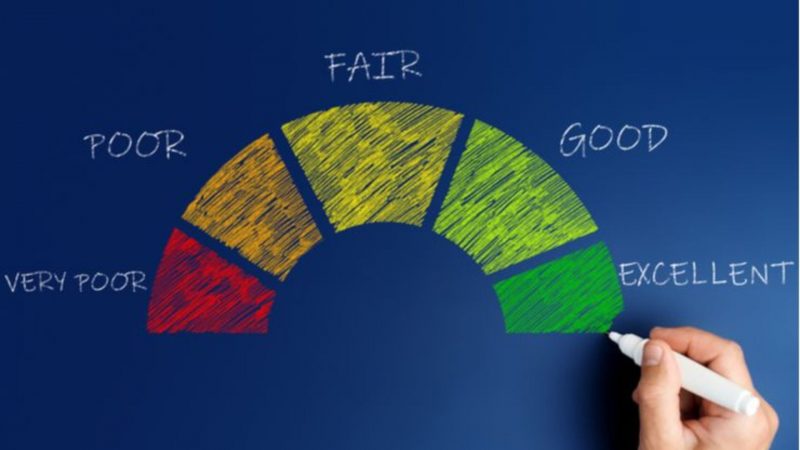
Major FAQs Related CIBIL or Credit Score to Clear All Your Doubts
If you want any type of short or long-term financial help your CIBIL or Credit score is key. Whether you want to buy a smartphone, a new car or your dream house, the financial assistance that you will apply for will be granted based on your creditworthiness determined by your CIBIl or Credit score. You will get loans approved very easily, with a low-interest rate, if you can get your credit score as high as close to 900.
However, this is a very tough, tricky and sometimes annoying job. Sustaining your credit score at higher levels is very hard because the score is never the same and keeps changing with every financial activity of yours. For instance, applying for a loan or credit card, delaying your EMIs, and even closing your loan account can tank it down negatively. So, to help you overcome every confusion we have discussed all major FAQs or frequently asked questions about CIBIL or Credit Score.

Also read
Check New FD Rates of ICICI, HDFC and PNB for 2023
Major FAQs to Clear the Doubts Related to CIBIL or Credit Score
What is CIBIL Score?
- CIBIL Score is a three-digit credit score provided by Credit Information Bureau (India) Limited for every registered citizen. A credit score is a three-digit credit rating of every earning individual defining his or her creditworthiness to the lenders.
What is the Lowest and Highest Credit Score?
- Your credit score or CIBIL score ranges between 300 as the minimum and 900 as the maximum range. In General, all the major lending institutions have set 750 as a benchmark for getting instant loan approvals.
What are the Major Factors that Affect Your CIBIL Score?
Three major factors play a major role in building and deteriorating your CIBIL Score:
Payment History
- Skipping payments, paying partial payments, or not making them on time will majorly impact your CIBIL score negatively.
Multiple Applications
- Applying for financial assistance multiple times in a short period of time will tank your CIBIL score. This includes applying for a credit card and any type of short-term or long-term loan.
Credit Utilization Ratio
- Utilizing more than 30 per cent of your approved credit limit also affects your CIBIL score or credit score. Higher utilization shows that you rely majorly on loaned money.
What are Hard Credit Checks ( Hard Query) and Soft Credit Checks (Check or Query)?
- A hard credit check is a detailed check of your credit report often done by a lender to judge whether to approve your loan or not. A hard query will decrease your credit report by a few points but it will be discoverable. A soft query is just about having an overview of your credit report often done by you while checking your CIBIL score.
How Much Time Does it Take to Improve or Increase CIBIL Score?
- This is one of the most common questions of a loan applicant. If your credit score has deteriorated, then you can improve your CIBIL score by complying with healthy financial activities, like paying on time, not applying for multiple loans in a short time, using only 30 per cent of your credit limit, etc. But remember your score will not increase or improve overnight, it will take an average of 4-6 months to get your CIBIL score on an upward track.
What is a Good Cibil Score?
- A CIBIL Score ranges between 300 (lowest) to 900 (highest). So, What exactly is a good CIBIL score? The answer is that the major lending institutions like commercial banks and NBFCs have set 750 or above as a benchmark to define an excellent credit or CIBIL score. However few lenders may agree to lend you money if you have a CIBIL of 650 or above.
How to Make Your CIBIL or Credit Report Error Free?
There are four major credit bureaus: CIBIL, Experian, Equifax and CRIF Highmark and every one offers a credit report on any individual to the lenders. If your report has an error that you have spotted and want to rectify then you will have to make a claim to the same credit bureau.
What Can be the Errors on Your CIBIL or Credit Report?
- Errors can have a great negative impact on your CIBIL report. You should check your report regularly and claim if you find an error to the same credit bureau.
Here are the most common errors you can find on your CIBIL report:
- Wrong Overdue amounts
- Inaccurate outstanding balance
- Duplication of accounts
- Wrong personal details
Should You Check Your CIBIL Score Before Applying for a Loan?
Yes, you should check your CIBIL before applying for a loan and also periodically. The main reason for that is that lenders judge your creditworthiness on the basis of CIBIL or credit score. When you apply for financial assistance from a lending institution it runs a credit check on you. So, at that time if your CIBIL score is high then there will be significant chances of your loan getting approved.
Will Checking My Own CIBIL Score Affect It Negatively?
You must check your CIBIL score at least quarterly. If you want to maintain your score at a higher level then you will have to know its variations that are affected by every financial activity of yours. So, if you are checking your own CIBIL score then it will be considered a soft credit check or soft query on your CIBIL report. And a soft query does not impact your CIBIL negatively.



